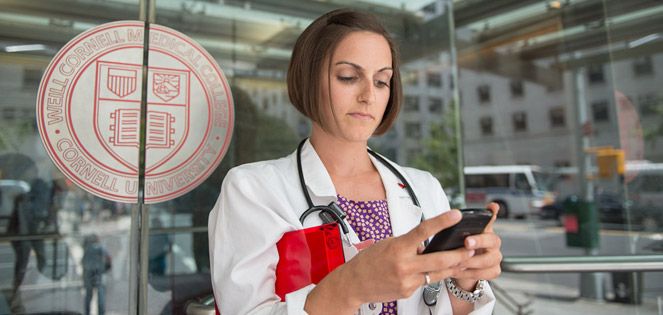
The first year includes experience at both MSKCC and Weill Cornell Medicine. The length of time the individual fellow spends on these two services is based on their track selection, and whether the fellow's primary interest is in cardiac or lung and esophageal surgery.
During the time spent at MSKCC, the fellow is the ranking member of the Thoracic Surgery House Staff. This service affords the fellowt voluminous experience in endoscopy and the surgical treatment of diseases of the lung, esophagus, mediastinum and chest wall.
The first year at WCM is spent performing cardiac and lung/esophageal thoracic surgery, seeing consultations for the Thoracic Surgery Service, and making rounds with the Chief of Service. Over 1,000 open-heart surgery cases are performed per year. This volume provides ample exposure and opportunity to participate as a primary surgeon as well as first assistant in all areas of cardiac surgery, including mitral and aortic valve replacements, myocardial revascularization, aneurysm surgery, congenital cardiac surgery and arrhythmia surgery.
Fellows also spend between three and six months on the congenital service, during which time they are exposed to the entire repertoire of operations for congenital heart disease in newborns, infants, teenagers and adults. This rotation introduces fellows to pre-, intra-, and postoperative care of these patients, as well as their often complex physiology. Those interested in subspecialty training in congenital cardiac surgery may then pursue this field through an additional fellowship following completion of the cardiac residency.
The Division of Thoracic Surgery, led by Nasser K. Altorki, M.D., provides ample hands-on exposure to all types of thoracic procedures. The Thoracic Service is extremely busy and places a strong emphasis on minimally invasive approaches, while still performing a high volume of complex open-surgery cases. Multidisciplinary care is emphasized, especially in oncology. The program is well balanced between benign and malignant diseases. Our faculty members are committed to superior outcomes and the training of highly proficient thoracic surgeons.
Outpatient office visits — including consultations, post-operative appointments, and re-evaluations — number approximately 3,400 per year. The residents are present during patient office hours and assist in patient care.
All second-year fellows serve as the Chief of Service responsible for leading the clinical care of patients on their service. This applies to all fellows whether they are in the cardiac or lung/esophageal track and serving at WCM or MSKCC.